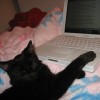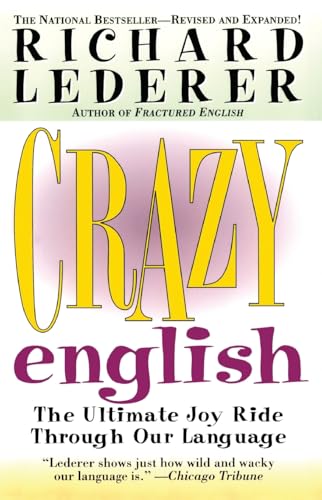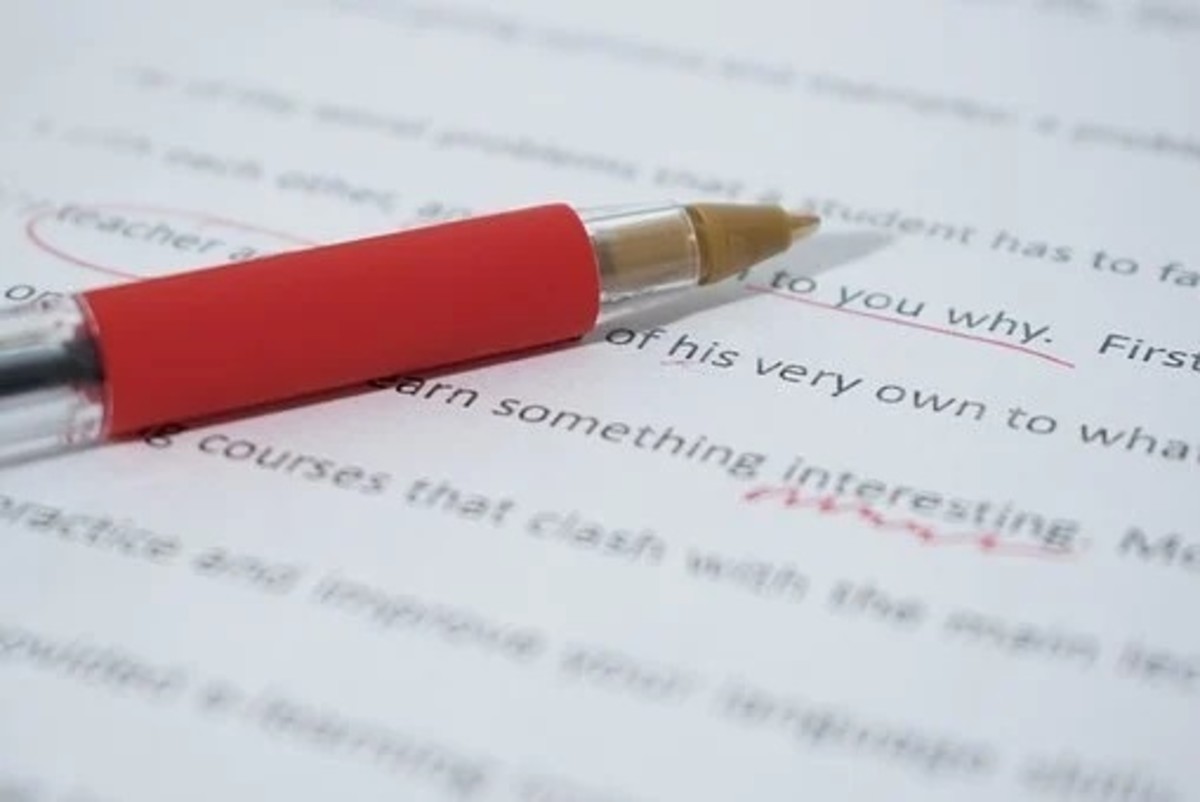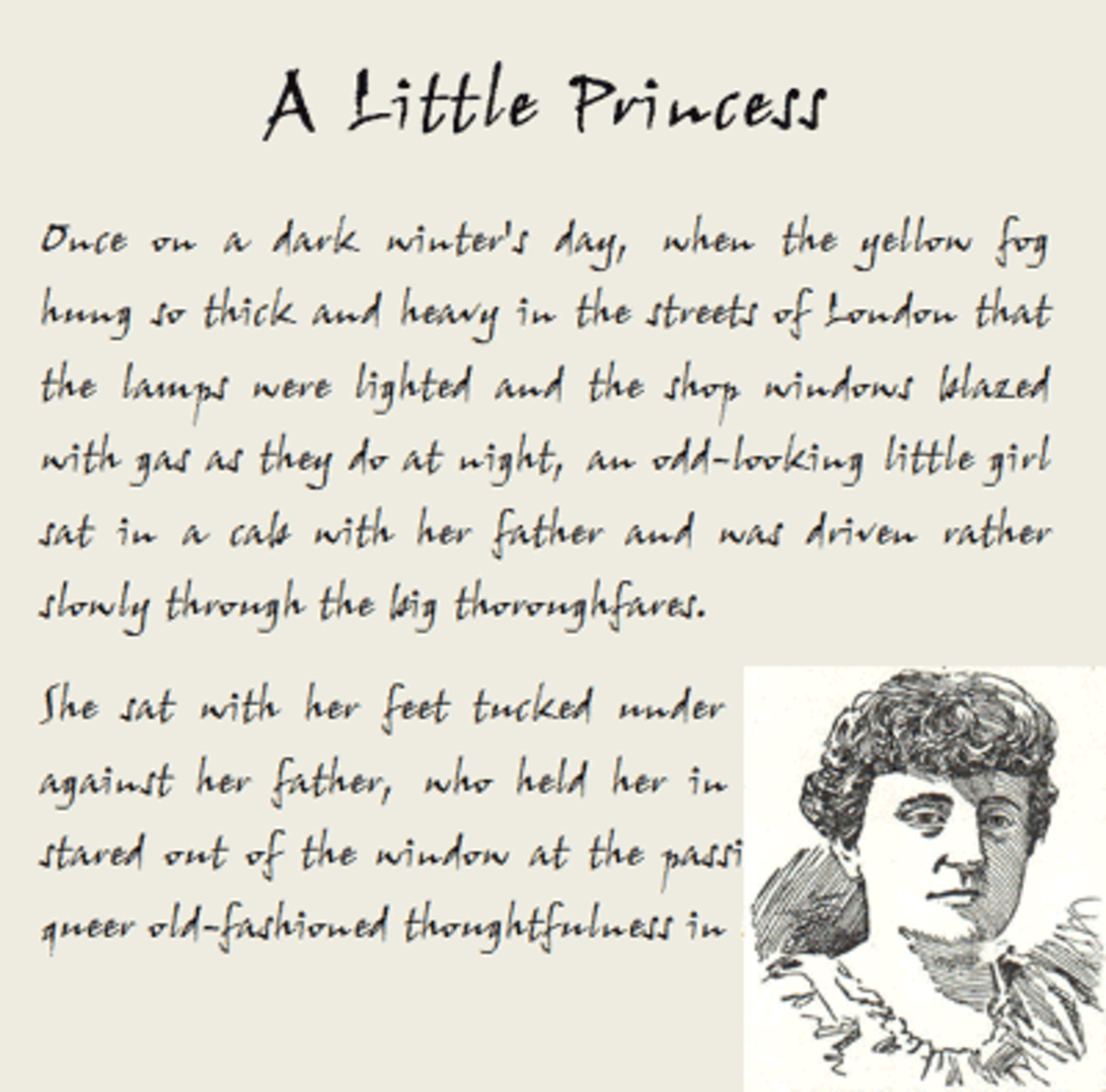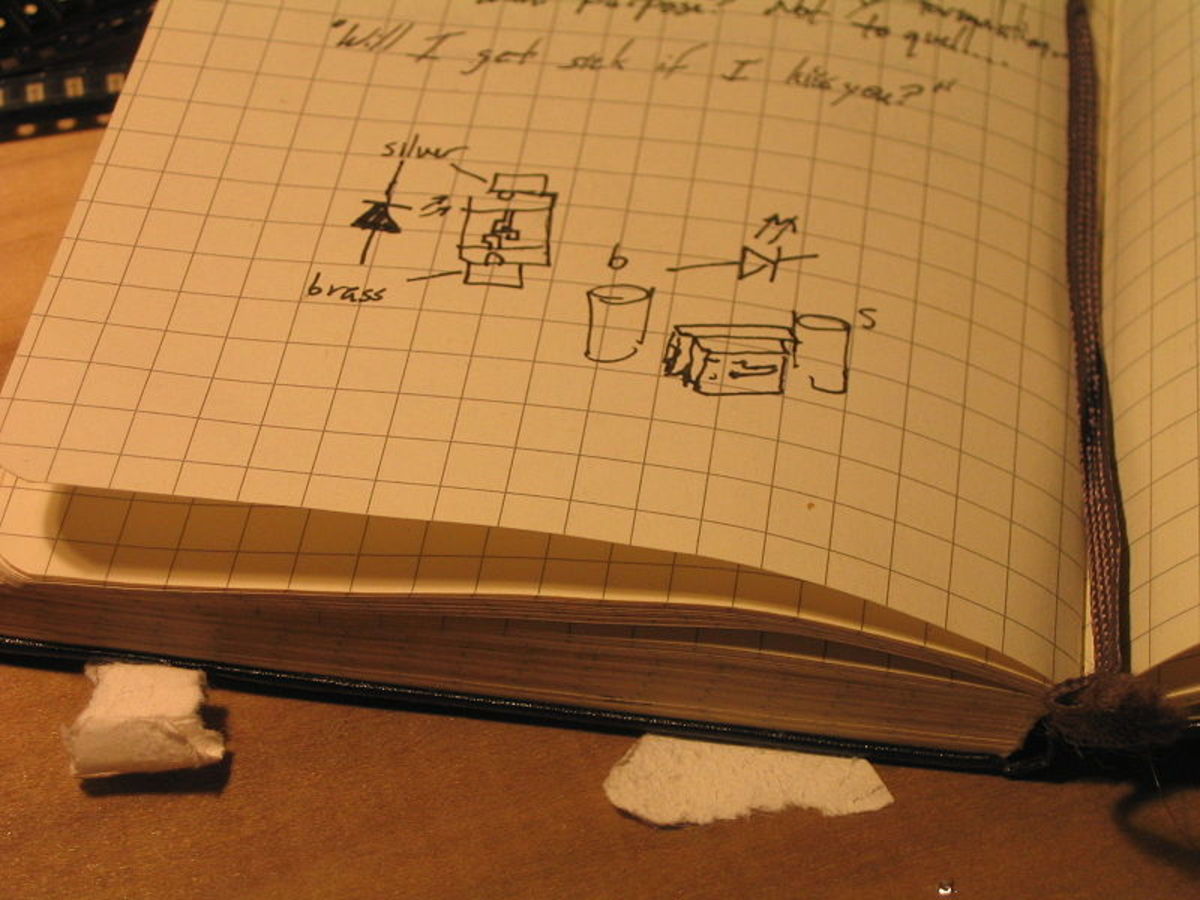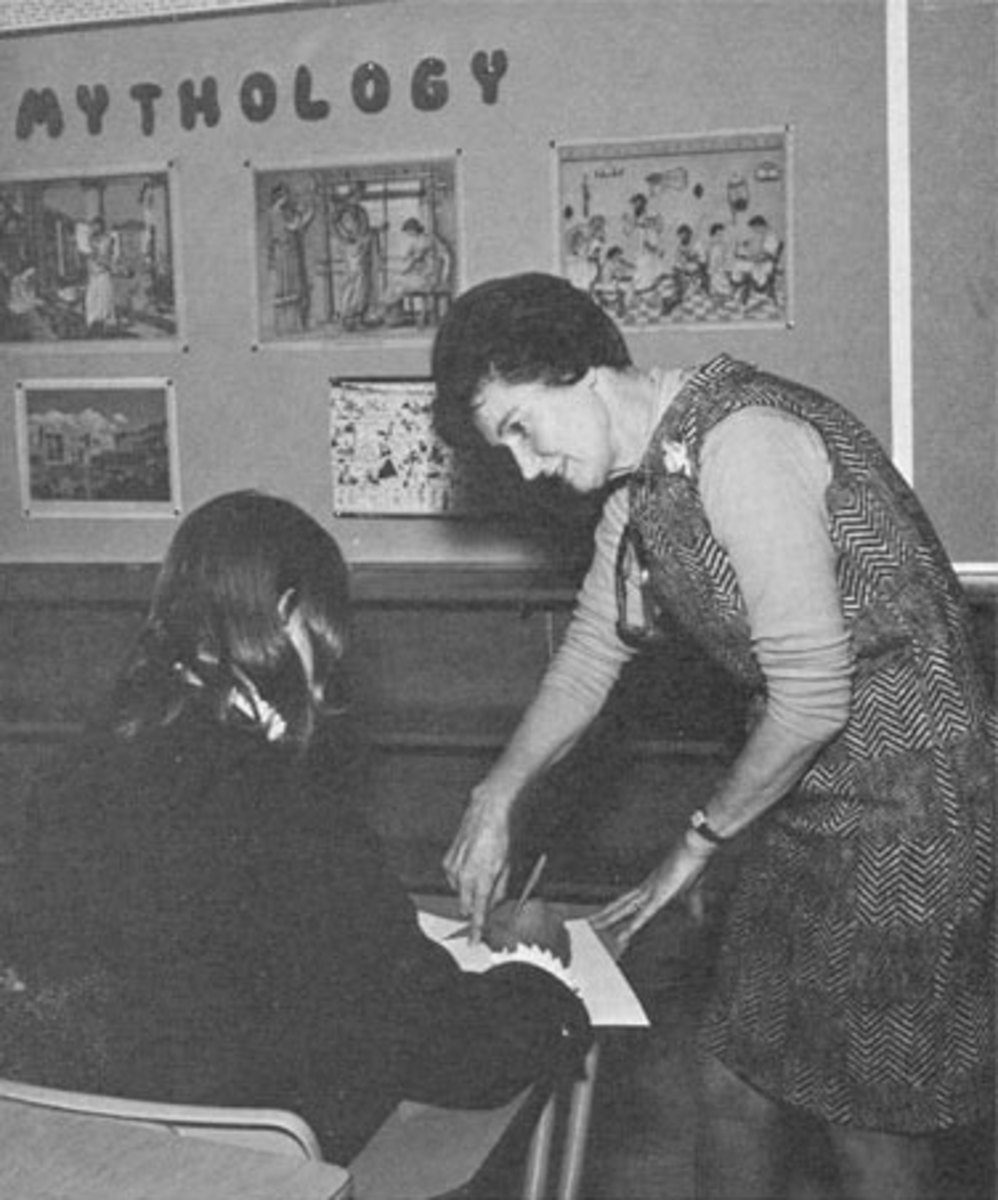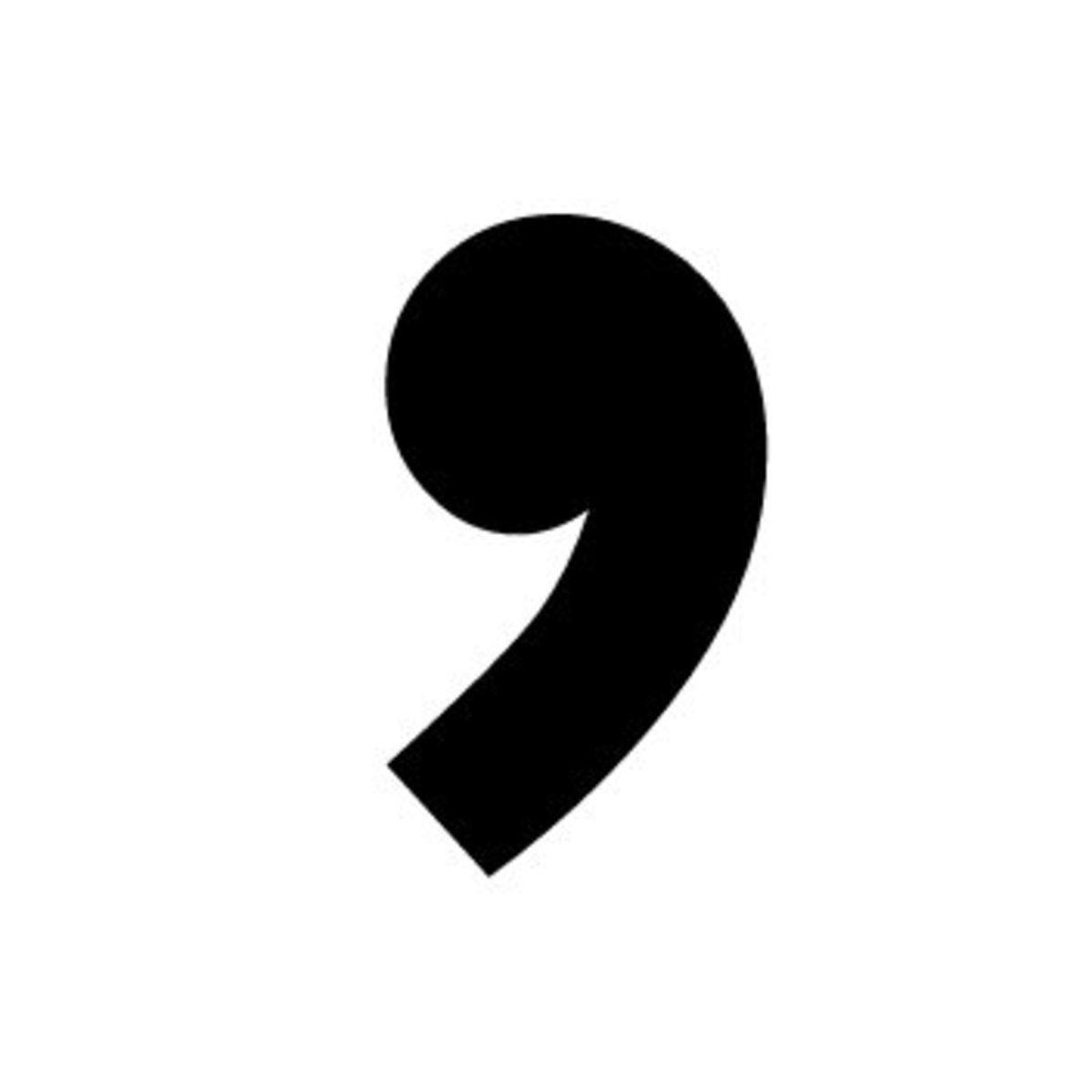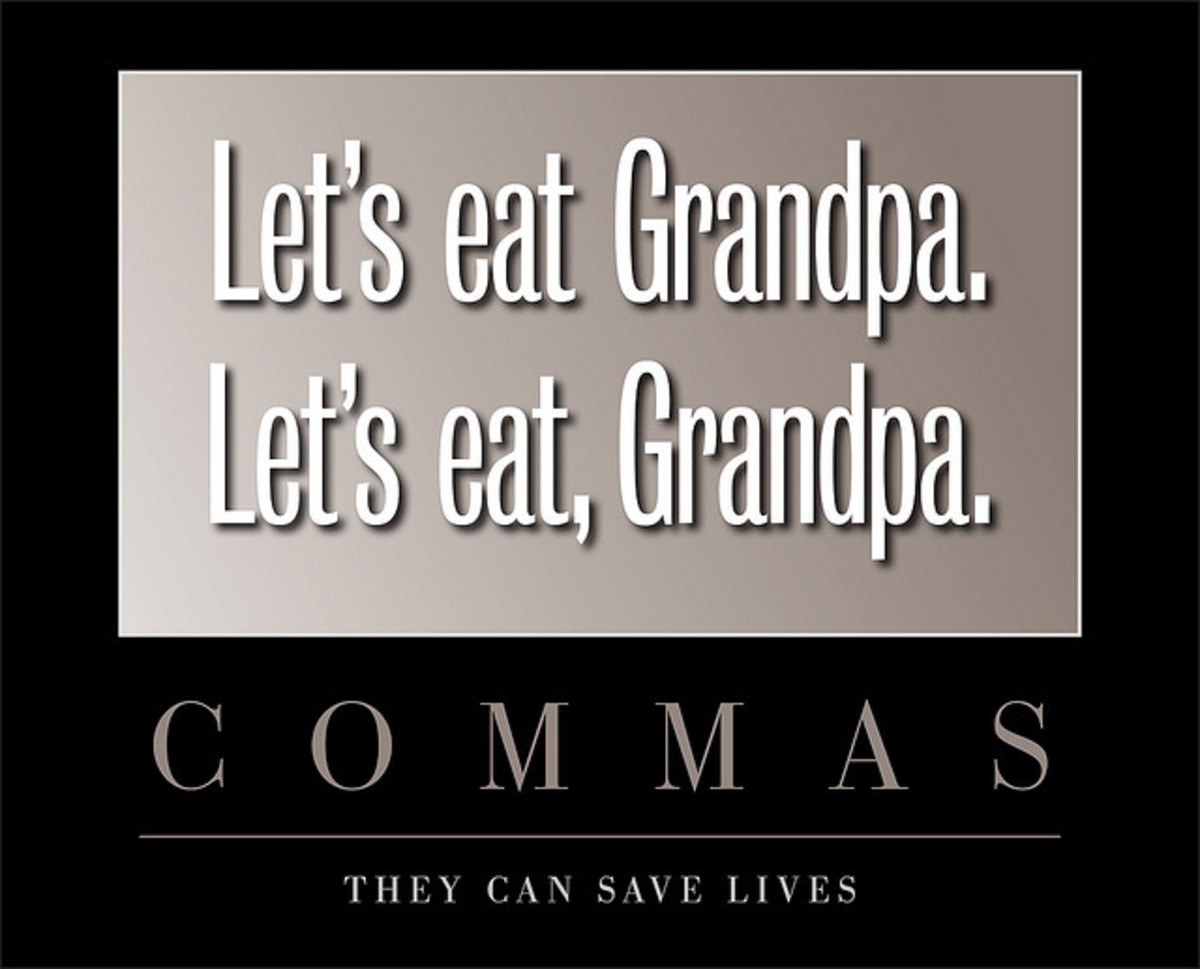- HubPages»
- Books, Literature, and Writing»
- Commercial & Creative Writing»
- Word Usage & Grammar
Most Common Grammar and Spelling Errors: Spot Mistakes in Your Writing
![Bad grammar makes me [sic] Bad grammar makes me [sic]](https://usercontent1.hubstatic.com/595850.jpg)
Everyone makes the occasional grammar or spelling mistake. I'll grant you that. But if you make them frequently enough in your writing, or even if you just make one or two obvious ones, your credibility goes way down.
Before I, Ms. Puns, begin your grammar lesson for the day, take a moment to peruse this list of types of writing that lose a reader's respect if he or she finds errors.
Newspapers. → Textbooks. → Magazines. → Business proposals. → Emails. → Novels. → Television ads. → Instruction manuals. → HubPages. → Letters of acceptance. → Catalogues. → Dictionaries. → Pill bottles. → Book jackets. → Posters. → Checks. → Clothing tags. → Envelope labels. → Condom boxes. → Nutrition Facts. → Closed captioning. → CD cases. → Press releases. → Amazon reader reviews. → eBay listings. → Blogs. → Classifieds. → Maps. → Calendars. → Recipes. → Campaign ads. → Captions. → Memos. → Shampoo bottles. → Anything that includes words that will be read by another human being.
First, a Review Lesson on Parts of Speech:
Noun: a person, place, thing, or idea. Examples: lady, Bob, heart, conscience, beach, leg
Adjective: a word that describes a noun. Examples: blue, hot, smelly, sixteen, sexy
Verb: a word that describes action or a state of being. Examples: jump, stink, was, are, happen, have, cook, type
Adverb: a word that describes a verb or adjective. Examples: run slowly, too fast, eat now, go unwillingly, very nice
Pronoun: a word that stands in for a noun. Examples: he, it, him, they, you
Possessive Pronoun: a pronoun that indicates possession. Examples: hers, mine, yours, theirs
Preposition: a word that begins a descriptive phrase. Examples: to, of, for, as, over
Conjunction: a joining word. There are only 7 and can be remembered with the acronym FANBOYS: for, and, nor, but, or, yet, so
Brush up your grammar on Amazon
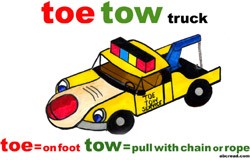
Lesson 1: Homonyms
Homonyms: words that sound alike but are spelled differently. This is by no means a complete list, but these are some of the most commonly misused homonyms. I will demonstrate how to use them correctly.
to/too/two:
- To: can be used as a preposition or as an infinitive phrase. I went to the school. I am going to teach you about grammar.
- Too: an adverb or as a synonym for also. It is too hot in here. I want to go, too! (Notice the comma before the word too)
- Two: the number only. I want two pickles, not three.
there/their/they're:
- There: a direction. I put the box over there. There is a cat in the house.
- Their: a plural possessive pronoun. Where did the children put their toys? Their minds are elsewhere.
- They're: a contraction of the words "They are." They're getting away!
its/it's:
- Its: possessive pronoun ONLY! The cat chased its tail.
- It's: contraction of the words "It is." It's illegal to kill a guy.
here/hear:
- Here: a direction. Here is a cookie. I'm down here!
- Hear: a verb pertaining to sound. He has to speak louder because I can't hear him.
rain/reign/rein:
- Rain: precipitation. I hope it doesn't rain tonight.
- Reign: a noun or a verb pertaining to ruling over something. The economic downfall occurred during the king's reign. Queen Elizabeth reigned over England for many years.
- Rein: a noun or a verb pertaining to controlling. I pulled the horse's rein to make him stop. He needed to rein in his overenthusiasm. The mother gave free rein of the house to her children. (Notice that adding the word "free" before "rein" made it mean the opposite.)
who's/whose:
- Who's: a contraction of the words "Who is." Who's responsible for this? I gave it to the man who's in charge.
- Whose: possessive pronoun. Whose dog is this? We will punish the person whose fault it is.
write/rite/right:
- Write: a verb. Write down your number.
- Rite: a noun meaning a tradition or ritual. Growing a beard is a rite of passage.
- Right: three meanings ↓
- Adjective meaning "correct." He has the right answer.
- Adjective, the direction that's not left. You should turn right at that sign.
- Noun that refers to something you are owed. Now that he is eighteen, he has the right to vote.
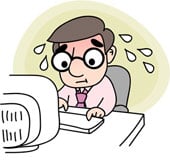
pair/pare/pear:
- Pair: noun or verb meaning a set of two. I will pair you with a partner. I bought a pair of earrings.
- Pare: a verb meaning to trim off gradually. I will pare the apple with my paring knife.
- Pear: a fruit. This pear tastes like crap.
bear/bare:
- Bear: two meanings - 1. a large, scary animal. I hope that bear doesn't eat me. 2. a verb with 2 meanings - to support or to give birth to. I will bear the burden of his death. I can't bear to feel this pain. She will bear a child. (Past tense: borne)
- Bare: two meanings - 1. an adjective meaning empty or exposed. I looked mournfully into the bare cabinet. He felt the burn on his bare skin. 2. a verb meaning to uncover or reveal. The lion bares his teeth. Also used with the word "lay," as in, lay bare, to reveal. Her secrets were laid bare for all to see.
accept/except:
- Accept: verb meaning to agree to take something. I accept your apology. I will not accept late papers.
- Except: two uses - 1. preposition meaning "excluding." I took everything except the kitchen sink. 2.conjunction also meaning "excluding." I would have taken the sink, except it was too heavy.
proceed/precede:
- Proceed: two meanings - 1. verb meaning to go ahead with. You may proceed with your speech. 2. noun (only used in the plural) meaning sales earnings. The proceeds from the concert go towards animal shelters.
- Precede: verb meaning "to go before." A cocktail hour will precede the dinner.
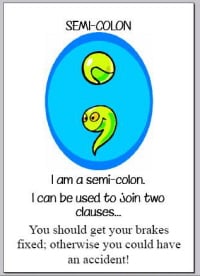
Lesson 2: Punctuation
I was going to include a full lesson on punctuation. I quickly realized, however, that punctuation rules would make up an entire article in and of itself. Perhaps this will be coming soon.
I will name one error, however, that I see many people making. It is the run-on sentence caused by a comma error.
Example: I saw this HubPage, I looked at it to fix my grammar.
Do you see the problem? A comma is simply not a strong enough piece of punctuation to be placed in this spot. A comma is not strong enough to separate two complete thoughts. On either side of the comma is a thought that could be its own sentence.
Ways to fix:
- Since both sides of the sentence are complete thoughts, you could just put them into two sentences: I saw this HubPage. I looked at it to fix my grammar.
- If you are adamant about using a comma, you need to add another word to the sentence, a conjunction: I saw this HubPage, so I looked at it to fix my grammar. OR I saw this HubPage, and I looked at it to fix my grammar.
- You could use the scaaaaary semicolon. Really, though, semicolons aren't that scary if you know how to use them. A semicolon IS a strong enough piece of punctuation to separate two complete (but related) thoughts: I saw this HubPage; I looked at it to fix my grammar.
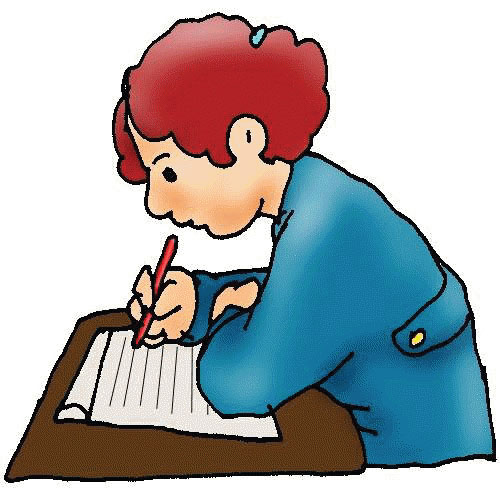
Lesson 3: Plurals Versus Possessive
This one is a big pet peeve of mine.
There are rules for making something plural. There are rules for using 's to make a word possessive. LEARN THEM NOW!
Plural: when there is more than one of something. Add -s or -es, no apostrophe.
- These televisions cost a lot of money.
- The worst kisses are sloppy ones.
- The numerous errors on your papers indicate a lack of revisions.
Possessive: when you indicate that something belongs to something else. Add 's for singular nouns, and just add an apostrophe for plural nouns.
- The man's tie is crooked.
- My sisters' dogs are ugly.
- My dress's zipper caught on the fabric. (Some people prefer to just add a single apostrophe to singular nouns that end in -s. Dress' is also acceptable.)
Fun With Language
Lesson 4: Agreement
As an English major, I'm the person everyone asks when they think they see an error in a publication. My parents call most often to ask about errors in agreement, particularly in newspapers.
Grammatically speaking, agreement is when the identity of the noun (singular/plural, male/female) matches the identity of another part of the sentence. In English, there are a few types of agreement to watch out for:
Noun/Pronoun: Plural vs. singular is the most common error, especially in cases when talking about a person whom you don't know the gender.
- Incorrect: "The child was walking their dog." Child is singular, and their is plural.
- Correct: "The child was walking his or her dog. (Personally, I find the politically correct gender neutrality quite annoying. I would just say, "The child was walking his dog.)
Noun/Verb: Most common in very long sentences, when you've forgotten the identity of the subject.
- Incorrect: "Melville’s abundance of searches, questions, and secrets in Moby Dick potentially come from the answers he desired in his own life." The subject is the singular "abundance," and the verb is the plural "come."
- Correct: "Melville’s abundance of searches, questions, and secrets in Moby Dick potentially comes from the answers he desired in his own life."
(And yes, that sentence came directly from a paper I wrote about Moby Dick in college.)
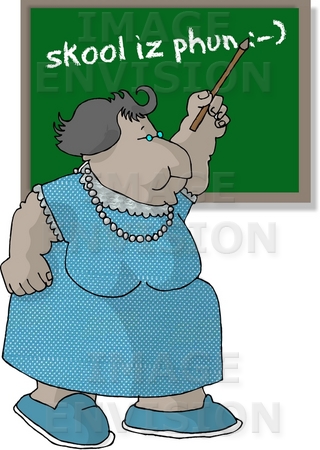
¶
¶
¶
¶
independent
irrelevant
judgment
lightning
millennium
mischievous
misspell
necessary
occasionally
panicky
possession
practically
presence
privilege
probably
receive
recommend
restaurant
sacrilegious
separate
temporary
until
usually
villain
weird
Lesson 5: Common Misspellings
I'm just going to make a list of words that many people misspell. Obviously, I can't list them all. That's what dictionaries are for.
Definitely: I had to name this one first because it is my biggest grievance. SO many people spell it with an "A", as in "definately." This is incorrect.
a lot
absence
accommodate
address
argument
believe
business
category
certain
collectible
commitment
conscience
conscious
dependent
desperate
disappoint
embarrass
exaggerate
exercise
existence
fascinate
foreign
government
grateful
